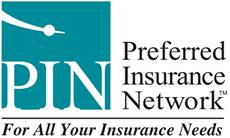When considering the costs associated with utilizing an insurance agency, it’s crucial to be mindful of the various fees that can impact your overall expenses. From commission fees to service charges, each component plays a role in determining the total cost of your insurance coverage. Understanding these fees allows you to make informed decisions and ensure that you are getting the best value for your money. But what about the less obvious costs that might catch you off guard?
Key Takeaways
- Commission fees vary by insurance type and influence agent recommendations.
- Administrative charges cover day-to-day operations and are non-negotiable.
- Policy fees are one-time charges for paperwork processing and issuance.
- Service fees vary by agency and cover paperwork processing costs.
- Premium markup adds administrative costs on top of the base premium.
Commission Fees
When looking at insurance agency costs, one significant aspect to consider is the commission fees. These fees are the payments that insurance companies provide to agents as compensation for selling their policies.
The amount of commission can vary depending on the type of insurance and the specific agreement between the agent and the insurance company. It’s essential to understand how commission fees can impact the overall cost of your insurance policy.
Agents may be more inclined to promote policies that offer higher commissions, so it’s crucial to ensure that the policy meets your needs. By being aware of commission fees and how they influence the recommendations you receive, you can make more informed decisions when purchasing insurance.
Administrative Charges
Administrative charges are fees associated with the day-to-day operations and management of an insurance agency. These charges cover the costs of processing paperwork, maintaining records, and providing customer service.
While commission fees are paid to agents for selling insurance policies, administrative charges are separate and cover the agency’s operational expenses. These fees are typically non-negotiable and are built into the overall cost of the insurance policy.
It’s important to understand what administrative charges entail when considering using an insurance agency. By being informed about these costs, you can make better decisions regarding your insurance needs and budget.
Keep in mind that administrative charges are standard across most insurance agencies and play a crucial role in keeping the business running smoothly.
Policy Fees
Processing insurance policies involves additional fees known as policy fees. These fees are charged by the insurance agency to cover the administrative costs associated with setting up and maintaining your policy.
Policy fees are typically a one-time charge and can vary depending on the complexity of your policy and the insurance provider. They help offset the expenses related to processing paperwork, underwriting, and policy issuance.
While policy fees may seem like an additional cost, they’re essential for the insurance agency to manage the policy effectively. It’s important to review your policy documents carefully to understand the specific policy fees associated with your coverage.
Being aware of these fees can help you make informed decisions when selecting an insurance provider.
Service Fees
Policy fees are just one aspect of the costs associated with insurance policies.
Service fees are another important consideration when using an insurance agency. These fees cover the costs of the agency’s services, such as processing paperwork, answering your questions, and providing assistance throughout the policy term.
Service fees can vary depending on the agency and the level of service provided. Some agencies may charge a flat fee, while others might charge a percentage of your premium.
It’s essential to understand these fees upfront to avoid any surprises later on. Make sure to ask your insurance agent about the service fees involved and how they’ll impact the overall cost of your insurance policy.
Brokerage Fees
Occasionally, insurance agencies may charge brokerage fees to cover the costs associated with placing your policy with a specific insurance carrier. These fees are separate from service charges and are related to the administrative work involved in securing the best insurance option for you. Brokerage fees can vary depending on the complexity of your policy and the amount of research required. Below is a breakdown of potential brokerage fees you might encounter:
| Brokerage Fees | Description | Cost |
|---|---|---|
| Policy Placement | Fee for placing your policy with an insurance carrier | $100 – $500 |
| Research | Cost associated with researching and comparing options | $50 – $200 |
| Administrative | Fee for administrative work related to policy placement | $75 – $300 |
Consultation Costs
When seeking insurance coverage, it’s crucial to consider the consultation costs involved in the process. Consulting with an insurance agency typically incurs charges, whether it’s a flat fee or an hourly rate.
These costs cover the expertise and time of the professionals helping you navigate the complexities of insurance policies. Prior to scheduling consultations, inquire about the agency’s fee structure to avoid unexpected expenses.
Some agencies may offer free initial consultations, while others might charge for every session. Understanding these costs upfront can assist you in budgeting for your insurance needs effectively.
Premium Markup
At times, insurance agencies apply a premium markup to the policies they offer. This markup represents the additional charge added on top of the base premium to cover administrative costs or to generate extra profit. The amount of markup can vary between agencies and policies, so it’s essential to understand how much you are being charged beyond the base premium. Here is an example breakdown of a premium markup:
| Coverage Type | Base Premium | Premium Markup | Total Premium |
|---|---|---|---|
| Auto Insurance | $500 | $50 | $550 |
| Home Insurance | $800 | $100 | $900 |
| Life Insurance | $800 | $80 | $880 |
Cancellation Fees
Moving from the aspect of premium markup to the realm of cancellation fees in insurance policies, it’s important to understand the potential costs associated with terminating your coverage early.
When you sign up for an insurance policy, there’s usually a binding period during which you can’t cancel without incurring a fee. Cancellation fees can vary depending on the provider and the type of policy you have.
These fees are meant to cover administrative costs and the time invested in setting up your policy. Before deciding to cancel your insurance policy, make sure to review the terms and conditions regarding cancellation fees to avoid any surprises.
Always consider these costs when evaluating your insurance options.
Frequently Asked Questions
Can I Negotiate Lower Premiums Through an Insurance Agency?
Yes, you can negotiate lower premiums through an insurance agency. By leveraging their relationships with insurance companies and understanding the market, agents can often secure better rates for you. It’s worth exploring this option.
Are There Any Hidden Fees or Charges Not Mentioned?
Yes, be cautious. Insurance agencies may have undisclosed fees like broker fees, policy fees, or administrative charges. Always ask for a breakdown of costs upfront to avoid surprises. It’s crucial to understand all potential charges.
How Do Insurance Agencies Handle Customer Complaints or Disputes?
When you have complaints or disputes, insurance agencies typically have dedicated customer service teams. They listen to your concerns, investigate the issue, and work towards finding a resolution that satisfies both parties involved in the dispute.
Will Using an Agency Affect My Ability to File Claims Directly?
Using an agency won’t hinder your ability to file claims directly. They can still assist you in the process. However, consider potential costs involved. Ask your agent for clarity on this matter.
What Are the Qualifications and Experience of the Agency’s Staff?
You’ll find that the agency’s staff holds various qualifications and extensive experience in the insurance industry. They are well-equipped to handle your needs and provide expert guidance throughout your insurance journey.
Conclusion
In conclusion, knowing the various costs associated with using an insurance agency is crucial for budgeting and making informed decisions about coverage. Understanding commission fees, administrative charges, policy fees, service fees, brokerage fees, consultation costs, premium markups, and cancellation fees can help you avoid unexpected financial surprises. By being aware of these costs, you can align your insurance needs with your budget and ensure you are getting the best value for your money.

